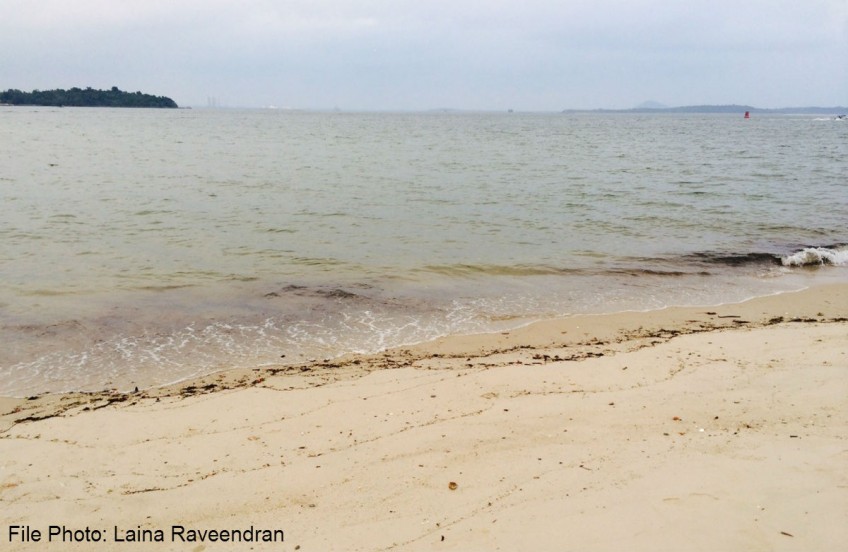A single operator to clean beaches after oil spills

SINGAPORE - The National Environment Agency (NEA) is setting up a centralised cleaning contractor to mop up the mess on land when oil spills hit.
The move to speed up post- spill cleanups will protect our shores and ensure people can use recreational beaches.
The agency called a tender for the new outfit after two separate ship collisions caused fuel-oil spills off the southern shores just before Chinese New Year, but before a third collision last week in the Singapore Strait.
The tender closes on March 7.
Currently, various government agencies in charge of coastal infrastructure clean up the areas under their care. For example, Sentosa Development Corporation is cleaning up the beaches on Kusu and St John's islands, which it oversees.
And when 2,500 tonnes of crude oil were spilt off Changi in May 2010, the NEA took charge of cleaning up public recreational beaches at East Coast and Tanah Merah, while the National Parks Board coordinated the cleanup of Pulau Ubin's Chek Jawa intertidal zone.
An NEA spokesman said: "As oil spills could impact different stretches of the coastline depending on where the incident occurs, there is a need for an arrangement to facilitate quick response and provide a more coordinated approach towards land-based cleanup of oil spill incidents."
While each agency is still expected to maintain basic capabilities to clean up oil spills at the shores under its care, she added, the new centralised cleaning contract is to help support them.
Marine biology expert Professor Chou Loke Ming of the National University of Singapore said: "Any fast reaction is a good move. Quick reaction to contain, or better, remove pollutants will help natural systems to recover faster."
When sludge reaches shore, it makes conditions less suitable for seashore organisms, and contains chemicals toxic to marine life. If left for some time, this affects shore life over the longer term, he added.
"Removal of the oil sludge inevitably also affects seashore species as contaminated sand is removed and physical feature of the shore is altered - but this is a better tradeoff that will see faster recovery as the effect of the oil sludge is removed."
Mr Milton Ng, director of Ramky Cleantech Services and president of the Environmental Management Association of Singapore, said the best solution is to isolate spills in the water and use dispersants before oil can even hit the beach.
Otherwise, it is costly and labour-intensive to dig up sand and send it for incineration.
The gradient of some beaches is too steep for excavators, and normal excavator treads will sink in sand, he added. "Once it hits the beach, it's very tough."
caiwj@sph.com.sg

Get a copy of The Straits Times or go to straitstimes.com for more stories.